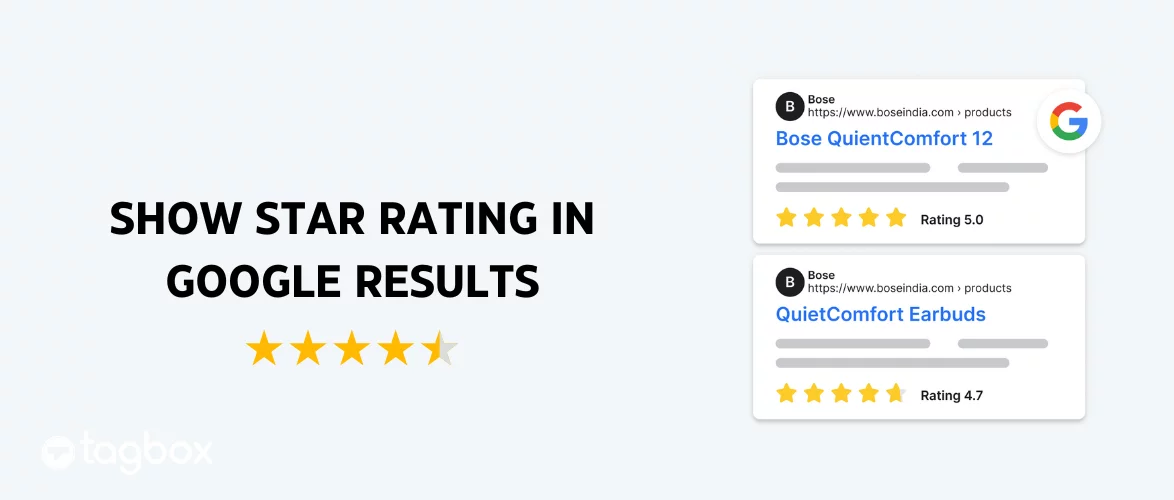Read summarized version with
Today, online reviews are super important for customers when they decide to buy something. These reviews must be real. Authentic Google Reviews, which are reviews from real customers, are especially important. They help a lot because they show what people think about a product or service.
Google is continuously making attempts to make its reviews as genuine as possible. But what can you do as a brand to ensure this? Here is a guide for you to understand why and how to ensure genuineness in Google Reviews.
Importance of Trustworthy Online Reviews
There are several compelling reasons why trust is an essential aspect of online reviews.
- Customer Confidence: Trust in reviews increases the confidence of a customer in the product. A customer trusting online reviews is more likely to be satisfied with the product as they made a well-informed decision.
- Brand Reputation: A business’s credibility is significantly affected if they are known to have fake online reviews. Customers not trusting the reviews on Google Business Profile reduces chances of retention and loyalty.
- Fair Competition: Trustworthy reviews level the field for the whole market. The brand with the best services and products leads if all the reviews are authentic, making it a fair competition.
- Transparency: When an online review is trustworthy, it also contributes to transparency in the marketplace. Genuine reviews allow customers to get information about the brand or the product that the brand might not want to promote on its own.
- Search Engine Ranking: Google has micro algorithms made to avoid fake reviews. This has made it essential for brands to make the reviews trustworthy not only for the customer but for Google as well. A brand with credible reviews is likely to rank higher on Google than the one with fake reviews.

Impact of Authenticity on Consumer Decisions
Customer’s decision-making is heavily impacted by authenticity in reviews. Some of the major impacts are mentioned below.
- Credibility: Genuine reviews on your brand increases its credibility. When users see a good mix of negative and positive reviews, they tend to trust the information provided. A brand known for having fake reviews is never trusted much for its services as well.
- Validation: When the reviews are credible, the details mentioned in them might also validate the customer’s choice. Genuine positive reviews from others reinforce the user’s choice of product.
- Risk Reduction: Customers sometimes feel risks attached to buying a product online as they cannot try it. Authentic reviews help them assess the risk and reduce their doubts as well. It also reduces the risk of buying the wrong product, as the reviews show that other people have used it.
- Customer Satisfaction: Trustworthy reviews also highlight the level of satisfaction the previous users of the product/ service had. This allows users to analyze what to expect from the product and decide if they want to buy the same or not.
- Comparison Shopping: When a user is confused about different products to buy, they tend to go to reviews to get a better choice. They are more likely to choose the product with more positive reviews.
Role of Google Reviews

Following are some of the major benefits of Google reviews.
- Customer Insights: Google reviews provide valuable insights into the customers, not only beneficial for new users but for the brand as well. Reviews provide feedback to the brand, helping them improve and increase the quality of the product or service they provide. Insights into customer satisfaction analyzed from Google Reviews also help brands in creating marketing strategies for the future.
- Consumer Decision-Making: 99% of users check online reviews before buying a product. Watching reviews on Google Reviews helps a customer assess the quality of the product and decide accordingly. Having positive reviews on your brand can attract more customers to your business.
- Competitive Advantage: Brands with higher ratings and better reviews on Google are likely to be displayed on local packs and Google Maps. This exponentially increases the visibility of a brand, giving them a huge competitive edge in the market. Good reviews make a brand stand out on Google, considerably increasing the traffic to the business.
- Community Building: Google Reviews create a sense of community among the reviewers. It provides a Review badge of a local guide to people who provide valuable reviews and are regular at it. This motivates the reviewers to add more reviews as they get to become part of a community because of doing so.
Use Google reviews to make your brand stand-out!
Signup NowUnderstanding Authentic Reviews
Authentic reviews itself is a complex subject that a brand must understand if they want to get the most out of it. Hence, below are different aspects of authentic reviews that must be aware of while managing their Google Reviews.
A. What Constitutes an Authentic Review?
Following are some of the characteristics that collectively make an authentic review.
- Personal Experience: It is very clear in a genuine review that the reviewer actually used the product/service. An authentic review must reflect what the user experienced so that the other reader can get a clearer picture.
- Specific Details: When a review is authentic, it also includes specific details and contains fewer vague statements. These details might include specific features, issues, or aspects of the services that the user experienced.
- Relevance: Authentic reviews are always relevant to businesses. Be it negative or positive, these reviews are always in the context of the service/product.
B. The Influence of Genuine Feedback on Consumer Trust
Authentic reviews on a brand’s page make a customer trust the business as it represents that the brand is honest. Customers trust information when they find the review to be authentic and unmanipulated.
Maintaining a collection of positive reviews that are also authentic fosters customer loyalty for the long term. It can also influence the search engine ranking, resulting in more traffic attracted to your business.
A detailed, authentic review also provides information about the product or the services that tell about its quality. It allows businesses to get valuable feedback that they can use to get better.
C. The Role of Google Reviews in Establishing Credibility
Google Reviews has a big role to play in establishing the credibility of a brand. Positive Reviews on Google act as social proof that shows that the brand has satisfied its users in the past. When potential customers see positive reviews in the majority, it reinforces their trust in the business.
Google Reviews also contribute to transparency as the users get to see the positive and negative aspects of the brand. Customers get to find out more about the brand with authentic Google Reviews, which makes them trust the brand more.
This also helps in enhancing the brand reputation by responding to Google reviews left by the customers.

Use Google reviews to build credibility!
Display Google reviews on your website now!
Signup > It’s FREENo Credit Card Needed!
Strategies for Encouraging Authentic Reviews
There are specific techniques and strategies a brand can use to ensure that most customers leave a review. Following are some of the major strategies a brand must use to encourage authentic reviews.
A. Providing Consistent Quality and Service
When customers consistently receive good quality service from brands, it creates a positive experience for them. This makes them want to share their experience with others and hence encourages them to leave a review.
When they have such experience consistently, it also enhances brand loyalty. Customers are also likely to recommend a brand, and they would want to do that by leaving a review.
There are instances when a brand has a practice of asking every customer for a review. This, combined with consistent quality, helps the brand in getting more positive reviews. While negative reviews can also be authentic, consistently performing well can help in reducing them considerably.
B. Encouraging Genuine Feedback: Dos and Dont’s
Encouraging customers to leave reviews is important for brands to promote as well as improve their services/ products. Following are the Dos and Don’ts of encouraging customers to provide feedback.
Dos:
Make it Easy: A brand must make it as convenient as possible for a user to reach the page where they can leave a review. Google Reviews provides widgets for brands that they can use to ask their customer for reviews.
Timing: While requesting a customer to leave a review, timing is very important. The best time to ask them to leave a review is just after the complete transaction is completed.
Act on Feedback: When a brand reacts and responds to negative feedback and analyzes it to improve, it makes the user feel acknowledged. This encourages them to leave a positive review when the issue is resolved.
Dont’s:
Intrusive Requests: Incessant and Intrusive requests for feedback should always be avoided as they act negatively for your reputation. The brand must respect the customer’s privacy, and hence, the request should abide by that respect.
Defensive Responses: When a brand receives a negative review, it must understand the issue that caused that review. Getting defensive while responding to the reviews discourages other people from reviewing.
C. Engaging with Customers for Honest Testimonials
Engaging with customers is one of the best ways to encourage them to leave a review. Every response should show that the brand has analyzed and understood the review to make the reviewer feel heard.
When a new user sees that the brand responds to most of its reviews, they will also be attracted to writing one themselves. Acknowledging each feedback while responding to them, whether it is positive or negative, also creates a good image of the brand.
Leveraging Google’s Review Platform
Brands have been leveraging Google Reviews to their advantage and have enjoyed the amazing benefits it offers. Following are some of the ways a brand can use Google Reviews to increase their sales and traffic.
A. Optimizing Google My Business Profile

To make the most out of your Google Reviews, you must optimize your Google Business Profile. Enhancing your Google Business Profile not only encourages more people to review but also the quality of the reviews posted.
You can use the business profile to respond to different reviews you receive, motivating more users to leave one. Optimizing your business profile on Google and keeping all your brand details up to date attracts more customers.
Once the customers are attracted to your business profile, they will come across the positive reviews you have. This increases the conversion rate and traffic on your business page.
B. Responding to Reviews: Importance and Best Practices
A brand needs to ensure that they are regularly responding to all their reviews on Google to enhance customer engagement. Responding to all comments demonstrates that the brand is committed to providing a good customer experience.
Responding to negative reviews also makes the customer feel that their review is taken seriously. This enhances the brand reputation when the brand analyzes the reviews and improves accordingly.
Responding to reviews also creates transparency between the brand and the customers. Brands can explain the reason behind a specific problem mentioned by a user in their review and provide the correct resolution for the same.
C. The Impact of Ethical Incentives on Authenticity

Ethical incentives can have a positive impact on the authenticity of reviews and customer feedback.
When businesses offer ethical incentives, such as discounts, free trials, or loyalty rewards, to customers in exchange for their reviews, it can encourage genuine and unbiased feedback. These incentives motivate customers to share their honest opinions and experiences without feeling coerced or pressured to provide favorable reviews.
Ethical incentives align with transparency and fairness, reinforcing the authenticity of the feedback received. However, it’s crucial that these incentives are disclosed and the reviews remain free from manipulation to maintain their authenticity and credibility.
Ensuring Transparency and Ethical Practices
There are certain practices a brand must follow to ensure transparency with the customers to gain their trust. Following are some of the major aspects of ensuring transparency.
A. Avoiding Manipulated or Fake Reviews
For a business to ensure transparency among customers, they must avoid adding manipulated and fake reviews.
Adding fake reviews is not only bad for the brand’s reputation but also leads to users having wrong expectations from the business. This might help in getting someone attracted to your business for once, but it significantly reduces the retention rate.
It is highly unethical and negatively influences the decision-making of a customer, and Google Reviews also has policies against it. Having fake reviews on your Google Business Profile can result in Google penalizing or completely removing your business from the platform.
B. Transparent Business Practices and Their Impact on Trust
Transparent business practices such as honest advertising, open communication, and clear pricing can result in building a stronger relationship with customers.
Businesses that are transparent with their customers in terms of their policies, operations, etc., are trusted more by the users. This trust encourages them to rely on the brand and ultimately makes them a loyal and long-term customer.
When a client thinks that the brand is being transparent with them, it also makes it easier for them to choose among different options.
C. The Legal and Ethical Aspects of Review Management
Certain aspects must be taken care of during the management of online reviews. Following are some of the major aspects a brand must consider.
False Advertising: Businesses must avoid making misleading claims in their reviews or promotional strategies. False advertising results in customers being disappointed with the product and hence decreases the possibility of retention.
Privacy Laws: Another aspect that the brand must consider is privacy laws. The brand must ensure that while using an online review of another customer, they are abiding by the privacy laws. Not abiding by the same can result in the business getting fined or shut down.
Authenticity: As repeatedly said in the previous sections, authentic reviews are not just ethical but also beneficial for your business. Brands must avoid manipulating or hiding authentic reviews, even if they are negative, to build trust among users.
Showcasing and Amplifying Authentic Reviews
A. Highlighting Positive Reviews on Multiple Platforms
To highlight positive reviews on multiple platforms, businesses can follow these strategies:
Platform Selection: The brand needs to identify the platforms most relevant to its audience. They must focus on the platforms where most of their target audience might be present.
Feature Positive Reviews: Using a show Google reviews on website strategy is one of the most popular and effective ways to market your company through online reviews. Displaying these reviews creates a positive image of the brand for new visitors exploring your website.

Email Marketing: Brands must include positive reviews in marketing emails to reach their existing customer base. By incorporating a Widget for Google Reviews in these emails, businesses can seamlessly showcase customer feedback, increasing customer loyalty as recipients see positive reviews left by others. This also validates their own choice of choosing the brand.
B. Integrating Testimonials on Websites and Social Media
Adding positive reviews and testimonials on websites and social media is one of the most effective ways to leverage online reviews. Following are some of the benefits a brand can enjoy with these practices.
Credibility: When a person visits the brand’s homepage or social media for the first time, seeing positive reviews and testimonials creates a great first impression.
Improved SEO: User-generated content like testimonials improves search engine rankings, making it easier for potential users to find the brand.
Customer Retention: Watching other customers say good things about a brand validates a customer’s decision to choose the brand. This enhances their trust in the brand, resulting in retention.
Monitoring and Adapting
A. Continuous Monitoring of Reviews for Insights
Brands should monitor reviews for valuable insights that can inform business decisions, improve customer satisfaction, and drive growth. To do this, brands can employ the following methods:
Regularly Check Review Platforms: Actively monitor review platforms like Google, Yelp, and social media for new reviews.
Bonus read- Google vs Yelp reviews: Which one is better?
Analyze Trends: Identify recurring themes and sentiments in reviews to pinpoint areas for improvement.
Engage with Customers: Respond to reviews to address concerns, express gratitude, and foster customer relationships.
Implement Feedback: Use insights from reviews to make operational, product, or service improvements.
Benchmark Against Competitors: Compare your reviews with those of competitors to gain a competitive edge.
B. Adapting Strategies Based on Customer Feedback
Brands must adapt strategies based on customer feedback to stay customer-centric and competitive. Customer insights help identify pain points, preferences, and areas for improvement. To do this:
Collect Feedback: Actively seek feedback through surveys, reviews, and social media.
Analyze Data: Scrutinize data for patterns and trends, identifying common issues or opportunities.
Plan the Changes Needed: Prioritize actions that will have the most significant positive impact on customer satisfaction.
Implement Changes: Modify products, services, or processes based on the insights and communicate these improvements.
Monitor Results: Continuously assess the effects of changes and fine-tune strategies to align with customer needs.
C. Learning from Negative Reviews: Turning Challenges into Opportunities

Negative reviews provide valuable opportunities for growth and improvement. By carefully listening to customer concerns, brands can:
Identify Weaknesses: Negative reviews pinpoint areas needing improvement, from product quality to customer service.
Engage with Customers: Responding to negative reviews professionally and empathetically can help resolve issues, rebuild trust, and retain customers.
Enhance Products or Services: Feedback from negative reviews guides the refinement of offerings to meet customer expectations better.
Prevent Future Issues: Learning from negative reviews helps brands proactively address potential problems before they impact more customers.
Conclusion
In today’s digital landscape, the value of online reviews cannot be overstated. As we’ve explored in this article, trust, authenticity, and transparency are the cornerstones of successful review management.
From the impact of authentic reviews on customer trust to the legal and ethical considerations surrounding review practices, businesses must prioritize these elements to thrive in the online marketplace.









